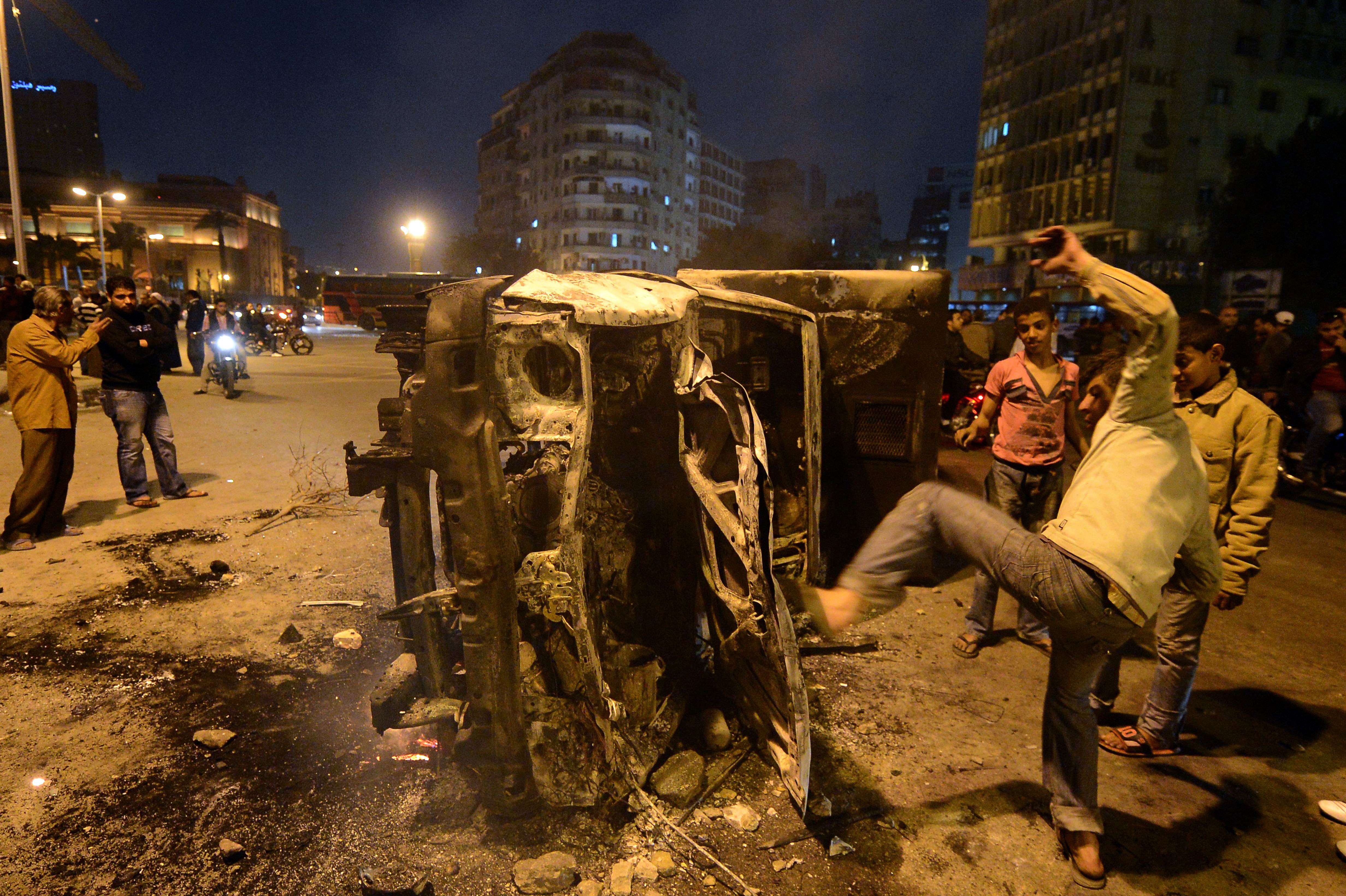The Egyptian Initiative for Personal Rights (EIPR) released a statement on Sunday calling on interim president Adly Mansour not to ratify a court ruling on the Abu Qurqas sectarian clashes.
Supreme State Security Criminal Court in Minya issued a ruling on 28 July in the case of violent sectarian clashes in Abu Qurqas village south of Minya that took place on 18 April 2011.
The Court sentenced 12 Copts to 25 years in prison followed by five years of police surveillance for murder and crowding. The court also sentenced eight Muslims to 15 years in maximum security prison followed by five year surveillance for theft, crowding and attacking Copts’ houses.
EIPR reject State Security courts and any other form of exceptional judiciary. The initiative called on Mansour not to ratify the ruling and to order a retrial in front of a civilian court.
The statement added that on 21 May 2012 a state security court had looked into the case and sentenced the Coptic defendants to life in prison and found the Muslims innocent.
On 4 December 2012 Prime Minster Hesham Qandil approved an appeal for a retrial by the nine out of the twelve Copts who were sentenced to life in prison, as one of them died in an accident and two escaped.
The Prosecutor General ordered the release of the nine defendants; however, they were place on a travel ban. The case was reopened on 20 January.
Isac Ibrahim, who is responsible for the religious freedoms department at EIPR said Supreme State Security Courts lack the basic criteria for fairness: “The procedures in both trials raise suspicions about the nature of the trial and how they dealt with the case,” Ibrahim said.
EIPR stated that in both trials, the court didn’t examine evidence in front of the defence and refused to hear some of the witnesses.
Abu Qurqas violence started on Monday 18 April 2011 when a microbus driver fought with guards of a villa owned by Alaa Reda Roshdy, who was a member of the dissolved National Democratic Party.
The fight led to more physical violence which led some Muslim residents to go to Roshdy’s villa to settle the dispute. Muslims held a meeting attended by almost 5,000. Police and army forces arrived as soon they heard of the Muslims’ gathering.
On the same night, unknown people torched a cafeteria owned by Roshdy and marched while chanting sectarian chants. Copts climbed over rooftops and opened fire injuring four people, two of whom died later in the hospital.
A spiral of violence and sabotage took place over four days. Houses, churches, cafeterias, bakeries and shops were attacked until the military ruler in Minya imposed a curfew amid a tense atmosphere.
The ruling Supreme Council of the Armed Forces ordered the military prosecutor to investigate the events. The case was then referred to Supreme State Security Prosecution which issued the verdict.

